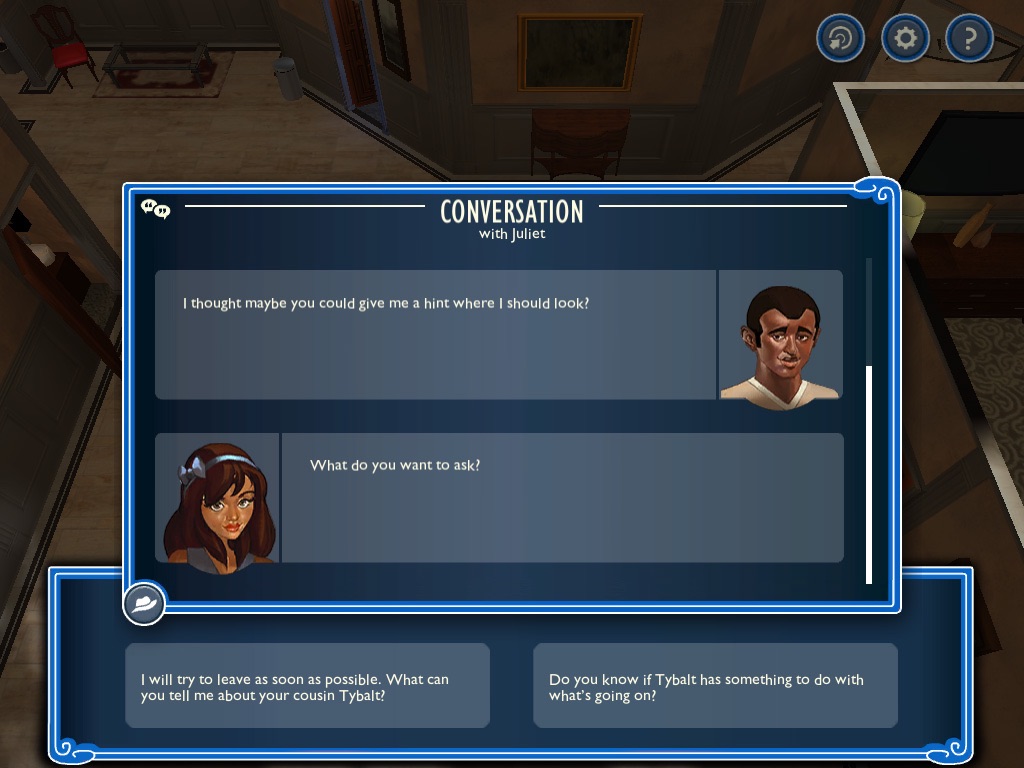
The Detective: Verona
Développeur K20 Center - University of Oklahoma
About the Game
The Detective: Verona is designed to show players that the key to information literacy is simple: collect information, evaluate that information by asking the right questions and use organizational strategies that work for you.
The game is set in the world of Romeo and Juliet, in present day Verona. As the grandchild of the famous private investigator Giovanni Durano it’s now your turn to solve mysteries by collecting, evaluating and using information.
In each scenario you must focus on collecting, evaluating and using information. By seeking out information from multiple sources, you will become better informed about the problem. By screening the collected information for specific criteria (like objectivity, verifiability, authority, timeliness and detail), you will determine if information is credible or unreliable. At the end of each scenario, you’ll need to draw conclusions from the information you’ve collected and choose evidence to justify your answer.
Learning Goals
In “The Detective: Verona” students encounter real-world informational literacy tasks such as collecting, evaluating and using information from different media types and formats. Designed for students grade 9-12, “The Detective: Verona” is aligned with national educational standards for literacy.
The purpose of “The Detective: Verona” is to teach students to make informed decisions and solve problems by making use of information from diverse formats and media in real-world situations. Because students ingest so much information via multiple media, they must focus on collecting, evaluating, and using information in order to effectively apply it to the game scenario and their classroom studies.
-Collect information
Students need to seek out information from multiple sources to become better informed about the problem.
-Evaluate information
Students will need to determine if information is credible or unreliable by screening it for specific criteria. This level is all about the following topics:
-Verifiability
Does this information use references or sources that can be verified? Are sources listed? Can it be cross-referenced with other information?
-Objectivity
What are the intentions of the author? Are methods explained? Does the source give objective information (good science or journalism, for example?) Is it biased because of the authors personal point of view of somebody or hidden commercial interests? Maybe the information is just an opinion or even a lie?
-Timeliness
Watch the date of the information. Is it current or outdated?
-Detail
How specific or vague is the source? Is the information clear or does it have more than one interpretation?
-Authority
Who is the author? What is the expertise behind this source? Did the author declare her/his name? Is she/he an expert of this field or maybe just ignorant of the topic? How much experience does the author have in the topic she/he is talking about?
-Use Information
Students will need to organize their collected and evaluated information to form a coherent understanding of the problem. One way to do this in the game is to flag your clues as credible/unreliable or show if the clue leads you to one solution or the other. They find out what way of organizing works best for them. In the end, it’s important that the student can make an informed decision about the problem and justify their decision with credible information.



